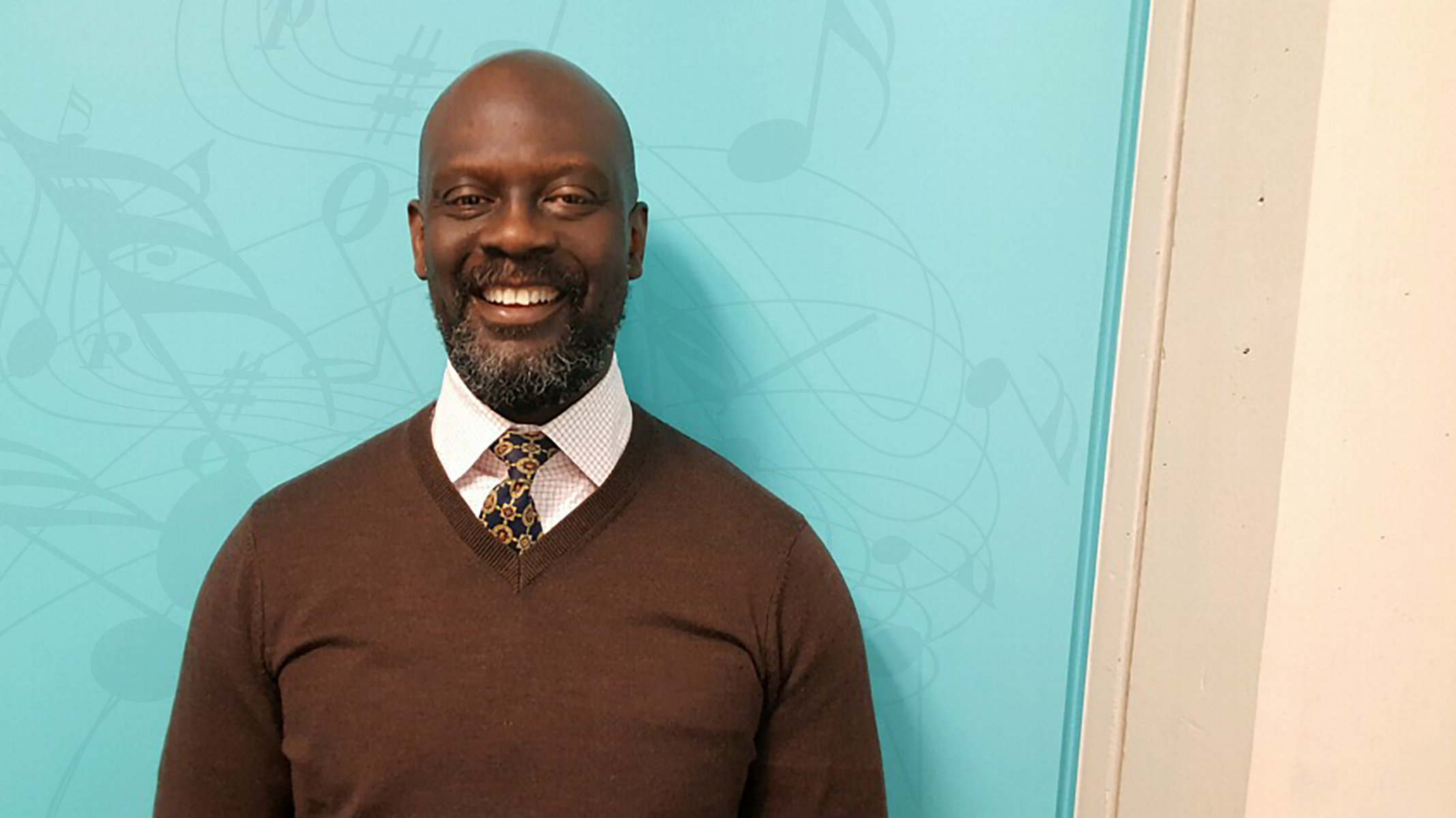CISCRP celebrates people who participate in clinical research as everyday medical heroes. In 2018, the One Person Closer campaign featured patients and physicians who have made a difference through their active involvement in clinical research. But did you know that we also have physicians and nurses working at Lilly to guide the strategy, design and procedural decisions for each one of the research studies listed on Lilly Trials.
Allow me to introduce you to one of those physicians: Wale (pronounced "Wally") Osuntokun, who has been with Lilly for more than a dozen years. These days, he leads a medical team focused on drug development for a variety of immunologic conditions such as psoriasis and other dermatologic conditions. Prior to that, he spent many years in clinical practice as a psychiatrist across three continents: Africa, Europe and North America, giving him insight into patient experiences from all over the globe. His work is driven by a passion to help people deal with their illnesses and a desire to provide trustworthy answers to their health questions.
After working with patients across multiple countries, Wale is quick to recognize the impact of debilitating chronic disease on a patient's mental health. Here's how he describes it: "Many systems in the body can be affected when the immune system goes awry, resulting in auto inflammation that can affect multiple organs such as the brain, lungs, heart, liver and skin. For example, in psoriasis, an immune-mediated skin disorder, the effects of the disease can be more than skin deep, affecting blood vessels and joints, and there can be a high impact on quality of life, including increased likelihood of psychological effects such as depression and anxiety. That's why we are intentional about also including questionnaires and measures in our clinical trials that collect information from patients about their psychological well-being. Having an impact on their psycho-social state is deeply meaningful to the patient, in addition to improvements in their skin.”
Wale’s unique perspective is inspired by the people who are closest to him: his parents and his wife, all of whom are also physicians, and his kids, who as teenagers and young adults are beginning to imagine how they will make their own mark on the world. He also acknowledges his siblings, friends and colleagues as role models whom he continues to learn from every day.
The respect and camaraderie he feels towards his co-workers are evident in the metaphor he uses for their work together: "I see clinical research as an orchestra. It takes many instruments playing together in harmony to create a symphony, and at various points, different sections will take the spotlight: brass, winds, strings, percussion. Similarly, it takes a symphony of people with different expertise in different areas coming together—with some taking the lead role at various points along the way—to develop a new drug. It is truly a remarkable thing to behold: building relationships over time and injecting excellence into the work with the goal of delivering excellence to patients. When all the parts come together, it really makes the hard work so rewarding."
...it takes a symphony of people with different expertise in different areas coming together, with some taking the lead role at various points along the way, to develop a new drug.
Excellence is definitely a theme that resonates with Wale. More than once during our conversation together, he talked about continuous innovation as a driving force. His greatest fear seems to be resting on past accomplishments and failing to press forward for new and better achievements to benefit patients. "Everything we accomplish today in the science or processes we use in clinical research sets us up to do even better, improving the quality of care and helping us to be ready to answer the next tougher scientific questions."
That sense of excellence shows up outside of work, too. Wale loves to play squash, and ranks high within the Indianapolis team in regional competitions facing those from Cincinnati and Louisville. But, he says, his age is catching up to him on the squash court, so salsa dancing may become his next fun activity.
When asked his advice for people who are considering joining a clinical trial, he is crystal clear: "Ask many questions. Be informed. Don't assume that the people doing the research understand your viewpoint. It's a partnership. Make sure you have the information you need to feel comfortable with research as an option for you."
Ask many questions. Be informed. Don't assume that the people doing the research understand your viewpoint. It's a partnership.
We couldn't agree more. In fact, providing information about research is the reason we created Lilly Trials in the first place, and it's our goal with conversations on Twitter as well. Drop us a line anytime. We'll be here.


